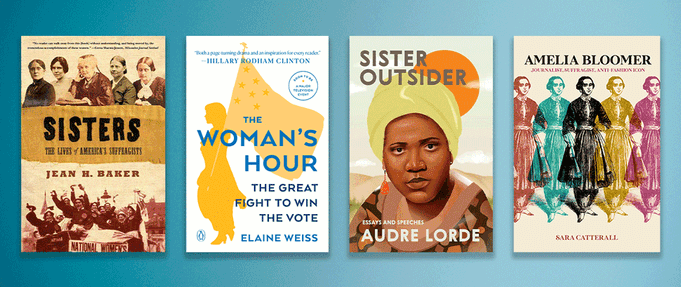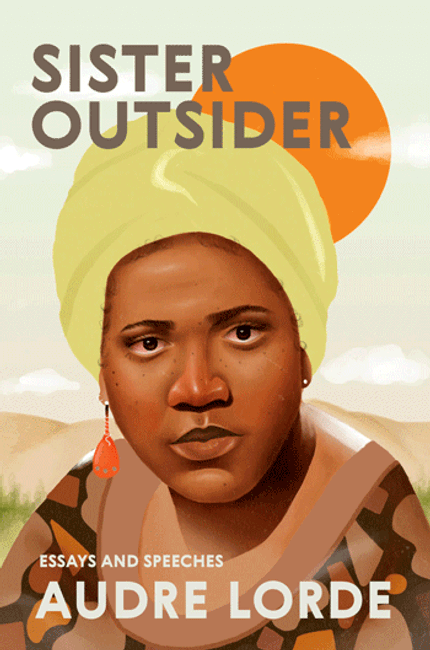On August 26, 1920, the 19th Amendment became law in the United States, granting 26 million women the right to vote. But, it's important to note that not all women were eligible, including those of Latinx, Native American, Asian American, and African American descent, and full electoral equality would not be achieved for many decades.
Today serves as an essential reminder of the ongoing fight for gender equality. While recognizing the progress that has been made throughout history, it is just as necessary to consider the work yet to be done. So, as you dive into the past with books on the suffragette movement, consider contemporary takes on the female experience in Hood Feminism and Sister Outsider, prompting us to reflect on what it truly means to be a supporter of all women.
There are many lessons to be gained from these political figures, movements, and overall trailblazers—and we ask you to sit back, read, and learn.
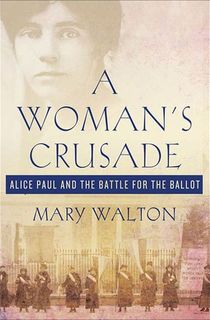
A Woman's Crusade
Alice Paul was raised in New Jersey in a Quaker family until a scholarship took her to England in 1907. There, she developed an interest in the suffrage movement, which would bring her back to the United States after her studies.
Paul became a leader of the militant wing of the American suffrage movement, where she and a group of followers picketed the White House, and were shortly arrested thereafter. This book follows her roles as a key figure in the women's rights movement, advocating tirelessly for the passing of the 19th Amendment.
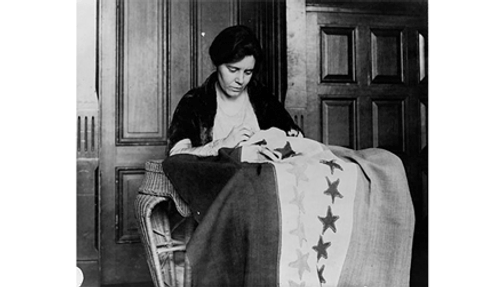
Alice Paul, sewing suffrage flag (1912-20).
Photo Credit: Wikimedia Commons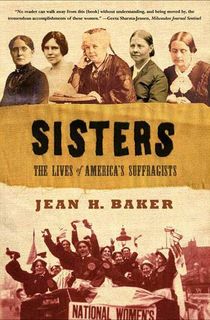
Sisters
In a one-of-a-kind book, the distinguished historian Jean H. Baker weaves together the public and personal lives of many key figures in the women's civil rights movement. From Lucy Stone to Frances Willard, Baker maps the beginnings of the movement, in which women's right to speak was questioned, to the rectifying of the 19th Amendment—a conclusion many thought wasn't possible or fought against.
These incredible women are on full display, outlining not only their achievements but the many privately fought battles, humanizing them in a rather approachable way.
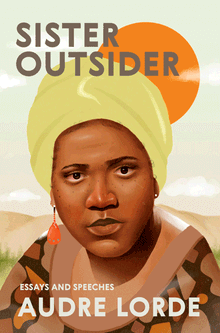
Sister Outsider: Essays and Speeches
Written from 1976 to 1984, this collection of fifteen essays encapsulates the literary and philosophical genius that was Audre Lorde. Tackling topics ranging from sexism and racism to ageism and homophobia, her precise prose serves as a call for action, with the hope of spurring others into action.
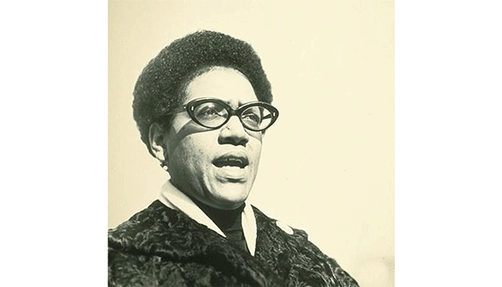
Audre Lorde
Photo Credit: Elsa Dorfman / Wikimedia Commons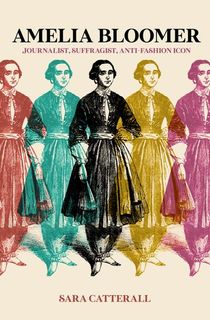
Amelia Bloomer
Often remembered for the clothing item named after her, bloomers, there is much more to Amelia Bloomer than being an advocate for women to take up rational dress. Chronicling her beginnings in upstate New York, moving into her role in the temperance movement, and her founding of The Lily—the first newspaper by and for women—Sara Catterall paints an astute picture of an overlooked figure in the women's rights movement.
During her days at the newspaper, which she also edited and published, Bloomer and the other members discussed crucial issues facing women of the day, including the right to vote, and ultimately played a key role in public discourse.
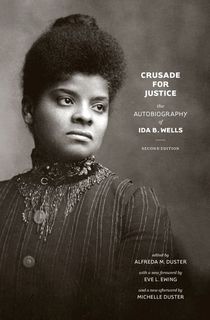
Crusade for Justice
Ida B. Wells lived an incredible life—as a leader in journalism, a condemner of lynching, and an advocate for suffrage, for both women and African Americans. Born to enslaved parents, Wells established the NAACP, a pioneer in the civil rights movement, alongside icons like W. E. B. Du Bois, Mary Church Terrell, and Susan B. Anthony.
Initially published in 1970, this memoir offers a unique blend of Wells' personal life, as both a mother and teacher, as well as her roles as a public figure in her fight for equality and freedom for all.
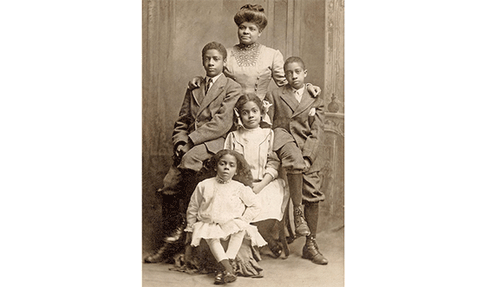
Ida B. Wells with her children (1909).
Photo Credit: Wikimedia Commons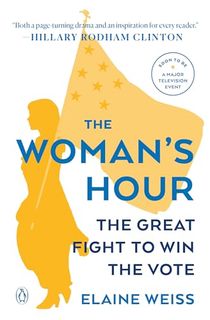
The Woman's Hour: The Great Fight to Win the Vote
It is August 1920. Thirty-five states have approved the 19th Amendment, while another fourteen have either rejected it or refused to vote. Only one more state is needed, and after an almost seven-decade movement led by the suffragettes against various opposing forces, it has all come down to Tennessee.
The Woman's Hour recounts this stunning moment in history, while sharing stories of all the people and work it took to get there. Appearances from Activists like Frederick Douglass and Eleanor Roosevelt come together in pursuit of the common, uniting factor of freedom.
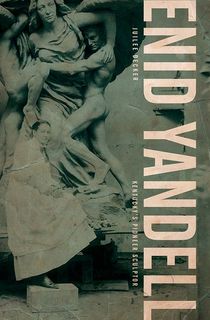
Enid Yandell
Working in the late nineteenth and early twentieth centuries, Enid Yandell gained success as a sculptor, one of only a few women, at the World's Columbian Exposition in Chicago in 1893. She was known for her distinct, masculine style, which sought to dismantle gender norms, while also advocating for women's suffrage and other progressive causes. This biography explores Yandell's beginnings in Louisville and her pioneering career as an artist with international acclaim.
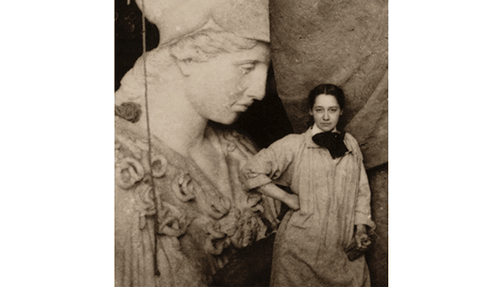
Enid Yandell with her sculpture of Pallas Athena (1896).
Photo Credit: Wikimedia Commons
Hood Feminism
Mikki Kendall, in this groundbreaking collection of essays, argues that today's feminists have it all wrong—focusing on issues that benefit an already well-situated few, while disregarding essential matters like food security, affordable housing, and medical care for all. Additionally, she discusses how white feminism has disregarded how race, sexuality, and class have the ability to intersect.
Drawing from her own survival stories, Kendall offers commentary on a wide range of issues from politics to pop culture. In a necessary debut, Kendall calls upon so-called feminists to reconsider their practices and evaluate what it truly means to be a supporter of all women.
Featured image: Bianca Marie Arreola / Canva
